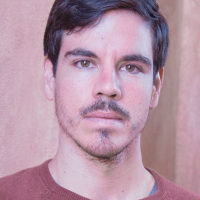In Nashville, youth under the age of 25 face some tough odds as they navigate schooling and try to lay the foundation for their futures. The city estimates that about 3,000 of its homeless population are 24 years old or younger. Youth poverty impacts around 30 percent of those ages 18 and under. And 74 percent of kids in the city’s public schools get their lunches for free because their families live below the federal poverty line.
Ronnie Steine, a consultant to Nashville Mayor Megan Barry on youth development, says these aren’t just the particulars of a Nashville story. He sees it as a replica of what’s going on among the school-aged in Boston, New York, Chicago — just a few cities Nashville has turned to recently to help figure out how to handle its youth issues.
“Unfortunately a large number of youth in the community might not have caring adults in their lives to help them make their choices,” he says. “I don’t think Nashville is unique in that way.”
Now they’re rolling out a new jobs program, called Opportunity Now, to give local students and their peers the hook-ups they need to become self-sufficient. Already over at the program’s job board there are around 8,000 opportunities, according to Steine, and they’re expecting that number to grow as more and more local businesses jump on board.
Listings are broken up into four categories. For the younger slice of that population there’s Experience Work, community service-style jobs. The High School Internship lasts six weeks during the summer, and places 17- and 18-year-olds at local companies or community organizations. Summer Plus offers entry-level positions for high school graduates, and Work Now has job listings for anyone out of high school.
“All are paid positions,” says Steine, and most are part-time. They’ll range from $8 an hour for the youngest workers to market rate for those with a little more experience. Of the 8,000 job listings up there, about 2,500 are internships for those ages 14 to 18 — a monumental leap up from the 150 paid youth internships that the city coordinated just a few years ago.
Barry’s original goal was to reach 10,000 job or internship spots in the first year. “We may not hit 10,000 but we’ll be in excess of 8,500,” says Steine. They’ll go beyond putting cash in the hands of young employees by linking them up with local nonprofits that can share lessons on financial education.
The program originated when Barry’s office held a series of five youth summits in 2015 and 2016 to gather public comment on the crippling issue of youth violence in Nashville. Twenty public agencies, ranging from the Juvenile Court to the Metro Arts Commission, and 400 high school students descended on at least one of each of the summits. These gave the administration a window into just how much the economic burden issue is connected with lapses in public and domestic safety in the area.
“Particularly for high school students, [providing jobs during] out of school time had been a relatively low priority for Nashville,” says Steine. “In the summer time in particular, the city has really been lagging behind what other communities have done for young people.”
Between 2011 and 2015 there were 16,955 “violent incidents” among people ages 25 years old or younger. Sixty-four percent of youth homicides in 2015 were black youth. One student who came to the summit commanded the city: If you want us to walk a tightrope, you’ve gotta provide us with a safety net.
So Barry’s office built out an agenda based on six pillars: meaningful youth engagement, health awareness and access, restorative justice and diversion, safe environment, education, and jobs and employment opportunities. Opportunity Now is the fruit of efforts to build out that last pillar, and it’s based on models like Boston’s SuccessLink program. That program started off employing 3,000 youth a year but is now up to 10,000.
A study by the Federal Reserve Bank of Boston took a look at 800 youth who participated in SuccessLink, and found that minority youth — and particularly those on the younger end of the spectrum — saw the greatest benefits when it came to interest in enrolling in an academic institution after high school. Youth across the board benefited from the additional knowledge on how to prepare a resume and build interview skills.
In total, it looks like investing in summer job programs has been a consistent win for youth in Massachusetts’ largest urban area — and it may just be the safety net that Nashville’s younger citizens are asking for.
The Equity Factor is made possible with the support of the Surdna Foundation.

Johnny Magdaleno is a journalist, writer and photographer. His writing and photographs have been published by The Guardian, Al Jazeera, NPR, Newsweek, VICE News, the Huffington Post, the Christian Science Monitor and others. He was the 2016-2017 equitable cities fellow at Next City.

















